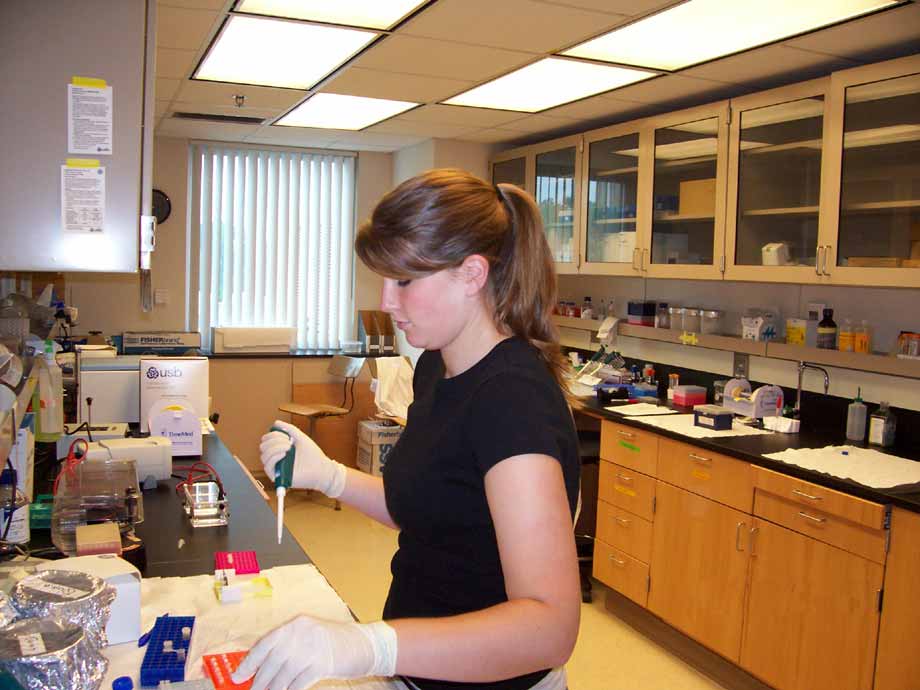Graduate Programs
Master of Science in Biology (cell/Molecular)
 The master's degree in biology (cell/molecular biology concentration) is awarded to
a student who has demonstrated mastery in the field of biology and a distinct ability
to make substantial contributions to the field. It is not awarded merely as a result
of courses taken, nor for years spent in studying or research. The quality of work
and the resourcefulness of the student must be such that the faculty can expect a
continuing effort toward the advancement of knowledge and significant achievement
in research and related activities.
The master's degree in biology (cell/molecular biology concentration) is awarded to
a student who has demonstrated mastery in the field of biology and a distinct ability
to make substantial contributions to the field. It is not awarded merely as a result
of courses taken, nor for years spent in studying or research. The quality of work
and the resourcefulness of the student must be such that the faculty can expect a
continuing effort toward the advancement of knowledge and significant achievement
in research and related activities.
The master's degree in biology prepares students to enter research careers in industrial and entrepreneurial settings, and non-research careers in a variety of areas including public policy, science communication, intellectual property law and science education.
30 credit hours are required to earn the the master's degree and work and typically takes two-three years of study beyond the bachelor’s degree. A substantial portion of this time is spent in independent research leading to a thesis.
OPTION A: Master's Degree in Biology (Cell/molecular), Thesis Option
-
- For the degree of master of science in biology (cell/molecular biology concentration), a student must complete a minimum of 30 semester hours of graduate course work approved by an advisory committee.
- In some cases, a written comprehensive examination may be required at the end of the first year for students with deficiencies in their coursework. The student must take a minimum of 6 hours of BIOL 6960, write an original research thesis and pass an oral examination on the thesis.
OPTION B: Master's Degree in Biology (Cell/molecular), Non-Thesis Option
-
- For the degree of master of science in biology (cell/molecular biology concentration), a student must complete a minimum of 30 semester hours of graduate course work approved by an advisory committee.
- The student must write an original research paper based on library research that meets the approval of the student’s advisory committee and pass an oral examination defending the research hypothesis. Normally, students choosing Option B will not be encouraged to pursue graduate study beyond the M.S. degree.
Up to 10 hours of graduate credit may be transferred from another accredited institution, as recommended by the student’s advisory committee.
Application information is available from the UToledo College of Graduate Studies.
Department of Molecular, Cellular and Developmental Biology M.S. requirements and checklist.
View the UToledo Catalog for more information on the M.S. in Biology (cell/molecular).


